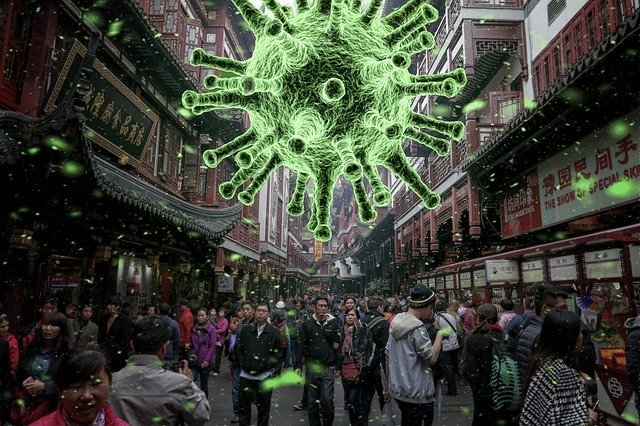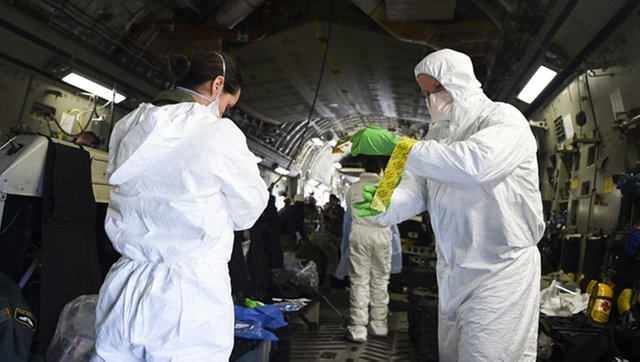Is Social Media Spreading Coronavirus Misinformation Faster Than the Virus Itself?

It’s been a little over a month since a new strain of coronavirus appeared in China’s Wuhan province and promptly spread to over 25 countries and territories outside mainland China. At least 560 have died and over 28,000 have been infected. Consequently, the World Health Organization declared coronavirus a global health emergency. What may be even more worrying, however, is how social media outlets have spread dangerous misinformation which may wind up causing far more harm than our very first viral virus.
Containing the Spread of The Latest Coronavirus
Because it is spread both from person to person by coughing or sneezing and through direct contact, the coronavirus is tough to contain. Adding to the confusion is the question of whether people who are infected but have no symptoms can infect others.
A couple of earlier outbreaks of coronavirus, SARS and MERS, only spread from people who had symptoms of the disease. While there is no conclusive evidence that asymptomatic people can spread the coronavirus, the greater danger may come from those who have symptoms whose condition isn’t severe enough to keep them home.
A man in Germany, for example, got the virus from a colleague who had just come back from China and experienced a brief fever. Nevertheless, he quickly returned to work and spread the virus to others.
Does Coronavirus Going Viral Cause Pose More Danger Than the Disease?
The real threat, however, may come from how coronavirus is portrayed throughout social media platforms. Being arguably the first major outbreak during the social media era, this virus stands as a test case for the spread of misinformation and distortions. With a U.S. president who constantly uses the term “fake news,” distrust in mainstream news outlets naturally remains high. As a result, false information and conspiracy theories tend to spread like wildfire across social media.
A 2018 study from MIT revealed that false news stories were 70% more likely to be reposted on Twitter than true ones. While this outbreak has prompted comparisons to the SARS virus in 2003, the difference now lies in how fast stories travel and how social media impacts the quality of the information.
Conspiracy Theories Abound on Social Media
Some of the more popular conspiracy theories include the notion that either the Chinese or the U.S. government created the virus, linking billionaire Bill Gates to the disease, and claiming that it resulted from Chinese people drinking bat soup.
Indeed, the first and third most popular posts on Instagram since the start of the outbreak feature photos and videos of people eating things like mice and bat soup. While such claims have been easily debunked, these theories perpetuate the type of racially insensitive stereotypes in which the eating habits of Asian people are blamed for the spread of a virus.
U.S. Lawmakers Take Notice and Social Media Takes Action
Subsequently, U.S. lawmakers have joined the fray. Rep. Debbie Dingell (D-Mich.), a member of the Energy and Commerce subcommittee focused on health issues, sent a letter recently to the leaders of Twitter, Facebook, YouTube and TikTok exhorting them to do more to stem the flow of disinformation.
As a result, Twitter, Facebook and Google are scrambling to divert users to more authoritative sources to combat the scaremongering and half-baked theories. For example, when a user searches for “coronavirus” on Twitter, a banner appears that says, “know the facts,” along with a link to the CDC’s summary page on the illness.
Recently, both Facebook and Google announced similar measures to promote facts instead of fear with Facebook adding that they will start removing posts with false information about the outbreak. This represents an unusual step for a company that previously demoted false content instead of removing it altogether.
Misinformation Reaps Rewards
Unfortunately, social media accounts on platforms such as Tiktok have gotten millions of views and many new followers by disseminating false information. For this reason, there’s no shortage of online conspiracy theorists clamoring to put their own sensationalist spin on actual news events.
Because anyone can share information on social media without any vetting or censorship, these platforms have become a spawning ground for ill-conceived theories that can induce panic. Although we may have access to far more information than in the past, it doesn’t necessarily mean that people are gaining more access to the truth. For all of the hype and hysteria, the risk of any American catching the coronavirus still remains very low.

Public Officials and Social Media Giants Must Work Together
Since social media offers the perfect avenue for opportunists looking to exploit public crises for financial gain, conscientious public health officials and organizations will have to step up their efforts to stem the flow of misinformation that can cause immediate and tangible harm to people.
While these platforms are still in the early stages of handling a rapidly evolving situation, some experts believe that the very nature of social media causes false information to spread more quickly during disease outbreaks. As Rep. Dingell added, “Much like this virus, misinformation, willful or benign in nature, will continue to spread until measures are taken to limit exposure and treat symptoms.” For these reasons, public officials, lawmakers and social media behemoths need to work more closely together to achieve reforms that can protect people from false information that has the potential to do more damage than the actual crisis itself.